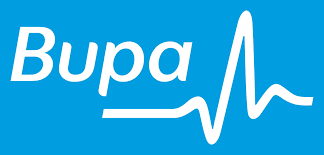
Preferred Provider Physiotherapy in Australia.
Australia has two (2) major health insurance companies, Bupa and Medibank Private. In order to provide better service for their members, both companies promote preferred provider schemes, i.e. a list of health providers that have earned their confidence.Currently, Owner Health has preferred provider status with Bupa at Beatrice Tce Physiotherapy and Hendra Physiotherapy in the Brisbane metropolitan area. Below we answer some frequently asked questions (FAQs) about the preferred provider concept.
What is a Preferred Provider?
A preferred provider like Owner Health is a physiotherapy clinic that has completed a successful application with a particular health insurance company. Across the board, this application is mostly focussed on geographic location, rather than quality of service or the expertise level of on-staff personnel. Does it make sense to prioritise providers based on geography? From Medibank's and Bupa's point of view, the answer is yes. They prefer to limit the number of clinics that operate in close proximity, in order to maintain price-patient referral equilibrium.
Why is Preferred Provider Beneficial for Patients?
Patients receive incentives (e.g. higher rebates) to attend a preferred provider. The effect of which is generally lower consultation costs. Consider the case of a physiotherapist who works at two clinics, one that is a preferred provider and one that isn't. For a patient with Bupa Health Insurance, the consultation is 20% lower in total price, and the patient receives almost twice the rebate, so the out of pocket gap costs are much lower:
Lower total costs + higher rebates = Much lower gap payments.
Example: At Beatrice Tce Physiotherapy, Bupa clients typically pay $6-$12 in out of pocket expenses,
whereas at other non-preferred clinics, a patient may pay anywhere from $45-$60 for the
same services.
So a patient being treated by the same physiotherapist with the same health insurance, but at an on-preferred clinic may pay 75-90% more.
Do All Health Insurance Companies have Preferred Providers?
As of now, Bupa, Medibank, and HCF are the only health insurance companies that have preferred provider arrangements (please consult their respective website(s) for more information). Note that if your present health insurance company doesn't have a preferred provider, you may still be getting benefits via other arrangements.
Why is Preferred Provider Status Beneficial for Physiotherapists?
To become a preferred provider, physiotherapists agree to lower their consultation costs to members of that specific health insurance company. In exchange for lowering fees, the company will advertise the practitioner's services on the internet, leading to extra referrals of new patients. In turn, these patients receive higher rebates, which work towards improving patient satisfaction.
How Many Referrals can I get? Is now the Right Time to Become a Preferred Provider?
Many practitioners are intrigued but apprehensive of becoming preferred providers. They are concerned that lowering fees to increase the total number of referrals will not be a net benefit to their clinic. Each clinic is different, but Owner Health receives approximately four to six new patient referrals per week from Bupa. Lower out of pocket expenses appear to encourage more consultations. On the other hand, clinics with high overhead should avoid preferred provider arrangements, because it is unlikely that they can get enough new patient referrals to justify charging lower fees. Medium to larger clinics with expensive rental costs, significant office space, and experienced staff are the least likely to benefit from preferred provider.
How do I become eligible?
As mentioned above, the assessment of preferred provider eligibility is largely based on your current geographic location, with the basic trade-off being lower consultation costs for extra clinic referrals. Evidently, having too many clinics in a small area – urban neighbourhoods in particular - makes it more difficult to get referrals. Based on local experience, five (5) kilometres between providers appears to be sufficient for consideration with most health insurers. However, not everyone is the same. For example, Bupa wanted approximately 5km between providers, whereas Medibank Private seems to insist on greater distances.
For more information:
How to book an appointment?
Recent posts
- What Is Mobile Physiotherapy? Everything You Need To Know
- Physiotherapy Exercises Following An Ankle Fracture: Safe And Effective Rehabilitation Moves
- Highest Paid Physiotherapist In Australia: How Much Do They Earn?
- Physiotherapy Referrals In Australia: What You Need To Know
- How To Rehab After A Knee Replacement Surgery